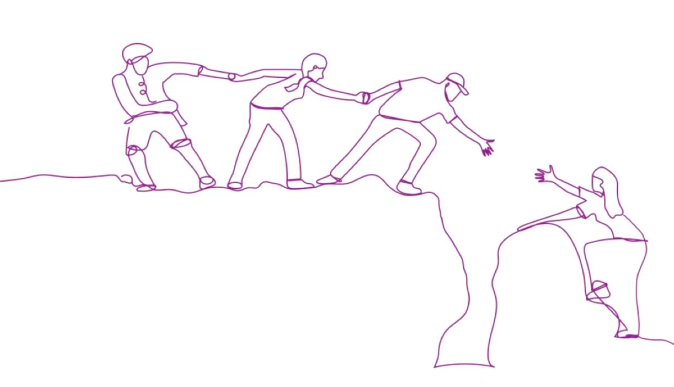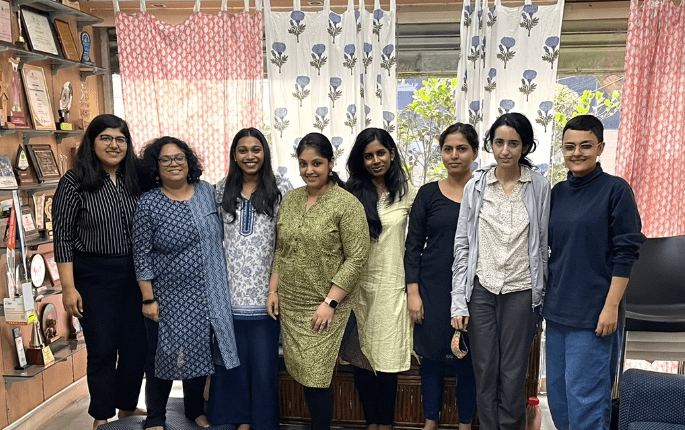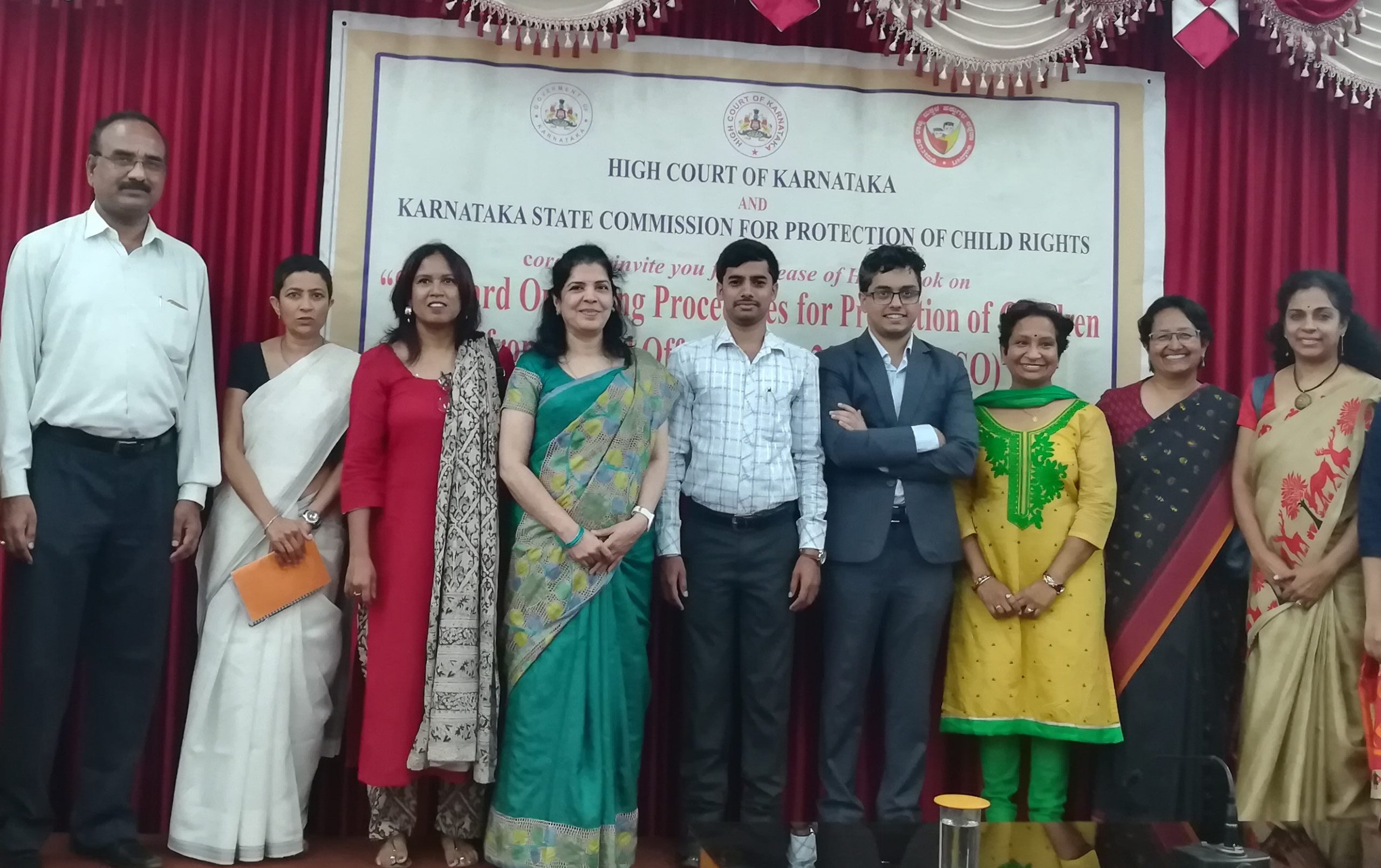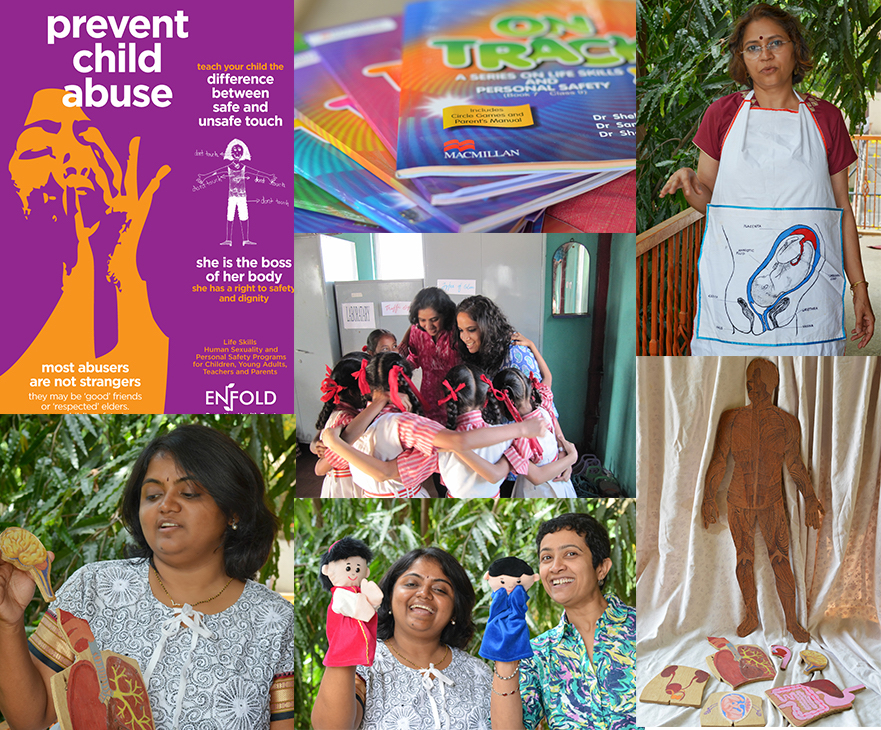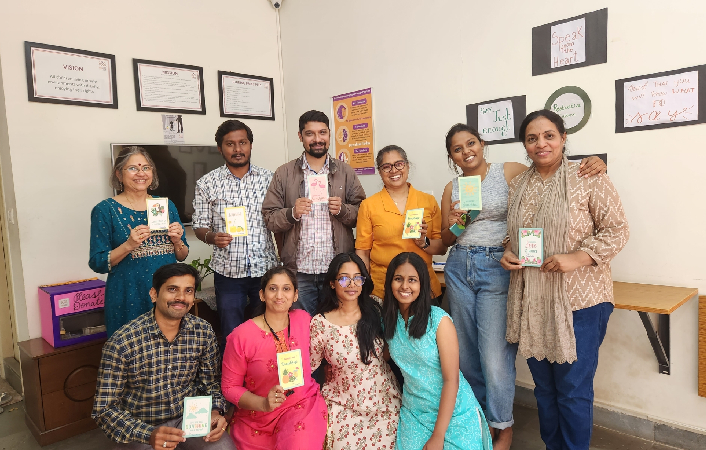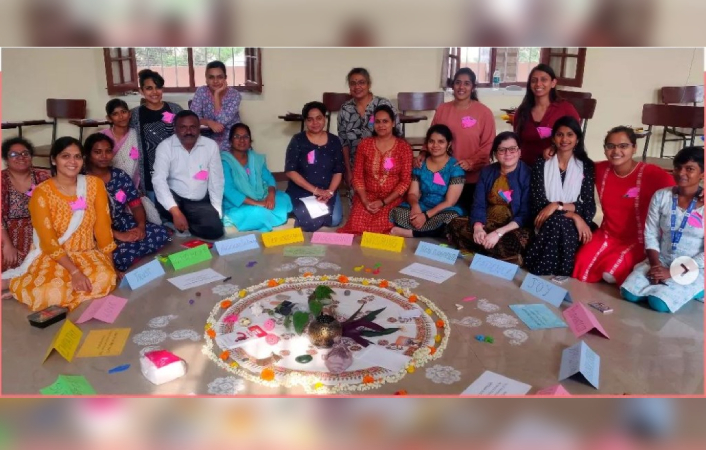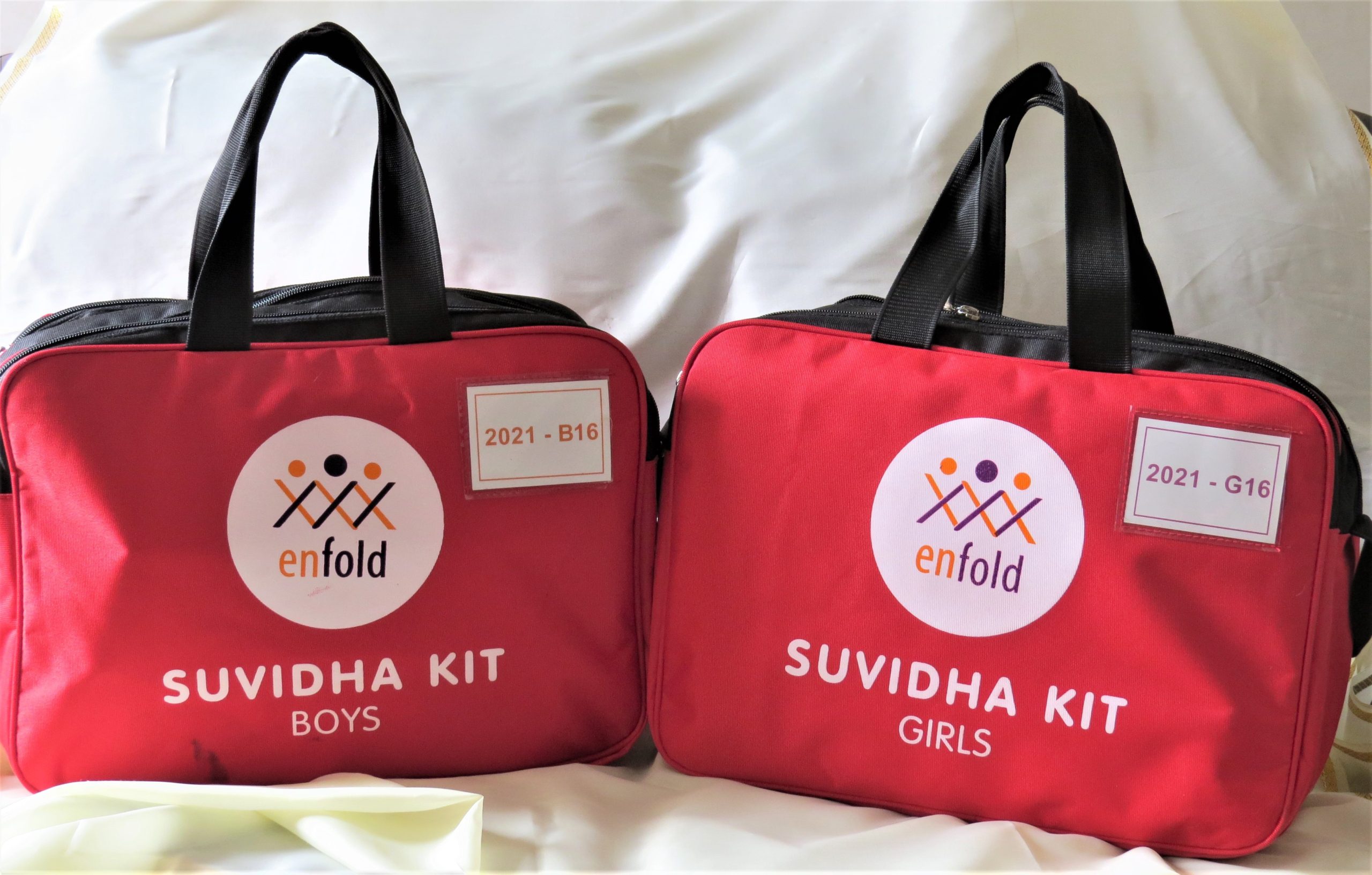How does the Support and Rehabilitation team assist child victims of sexual violence?
The Support and Rehabiliation team supports children in their journey through the criminal justice and child protection systems, after facing sexual violence. Over the past 12 years, the team has helped over 250+ children and their caregivers.
Every child who has faced sexual violence and abuse has a story to share about their journey, their doubts, conflicts, griefs, pain, strength and resilience. The concept of Support Person was introduced in the Protection of Children from Sexual Offences (POCSO) Rules, 2020 and has made the journey of such children less traumatic while ensuring that the provisions of the law are followed at all stages of investigation, trial and rehabilitation.
A Support Person, after being appointed by the Child Welfare Committee (CWC), becomes, in effect, the liaison between the child and their caregivers and those involved in the implementation of POCSO Act. Working in collaboration with stakeholders like the police, CWCs, doctors, mental health professionals, Public Prosecutors and the District Child Protection Unit, the Support Persons try to ensure systemic traumatization is minimized and that children are able to access their rights in a timely and child-centric manner.
The team has shared stories below about the ways Support Persons helped child victims under the POCSO Act & Rules, during the process.
Role of a Support Person while registering a complaint under POCSO Act – Zero FIR *
Prema*, a 14 year old girl lived with her father, Ravi, in Bhopal. One day, Ravi attempted to sexually assault Prema by lying down on top of her and touching her inappropriately. Using her presence of mind, Prema managed to escape and run out of the house for help. A neighbor sheltered the girl and called Prema’s mother, Ratna*, who worked as a domestic help in Bangalore. Ratna brought Prema to Bangalore, and wanted to take some action against her husband for sexually assaulting their daughter. Ratna was told about Enfold and she contacted the S&R Team members.
Our team helped Ratna register a case in Bangalore, which was then transferred by the police to the local police station in Bhopal, for further investigation and trial. They also made sure that Ratna was connected to the CWC here, so Prema could access her entitlements like sponsorship under Juvenile Justice (Care and Protection) Act, and financial relief under POCSO Rules. Prema was placed in a child care institution to continue her education and during her stay , she received a lot of emotional support and gained direction and purpose in her life.
Prema lives with her mother and older sister and is preparing to appear for her 10th standard exams. The trial of the case against Ravi continues in the trial court. The team continues to follow up on the case and support the family.
Role of a Support Person during medical interventions
When a child approaches a medical facility and it becomes known that the child had faced sexual violence, either the CWC or the medical authorities in Bangalore inform the S&R Team at Enfold. Based on the needs of the child, the Support Persons coordinates with the hospital authorities to ensure that the child does not feel re-victimised by the medical interventions & processes such as medical examination of the victim, treatment for injuries, collection of forensic medical samples, including Product of Conception (PoC), other medical conditions and access to reproductive health services. By drawing attention to addressing therapeutic care needs of the child, the Support Person ensures that the child and their caregivers are made aware about their right to consent/refuse any of the interventions, to receive a copy of the medical reports and access any free health care services as per the MoHFW guidelines*.
Roma*, a 16 year old girl, from a remote village of West Bengal, moved to Bangalore to pursue her studies. A few months after living in Bangalore, Roma fell sick, and was taken to a private hospital where it was found that Roma is over 29 weeks pregnant. As required under the POCSO Act, hospital authorities informed the local police about Roma’s situation. Since Roma was from another state, she did not speak the local language, nor did she have any family or support structure to help her during this difficult time. S&R team members assisted as translators during all the processes, and as Support Persons, helped Roma connect with her family members in West Bengal. The team also assisted Roma to open a bank account, connected her wit theChild Welfare Committee and also facilitated payment of interim compensation to Roma. Support Persons also contacted Roma’s college to ensure they held her admission, so she could continue her education and accomplish her dreams of becoming a nurse.
As Roma’s pregnancy was at an advanced stage, she opted to continue her pregnancy, deliver and hand the baby over for adoption. Support Persons assisted the CWC in placing Roma at a Child Care Institution to complete her pregnancy and deliver the baby.
The experiences of the Support and Rehabilitation Team, along with legal references, suggested guidelines and formats have been compiled in the Handbook for Support Persons 2021. Currently, the Handbook is available in English, Hindi and Kannada. The Handbook will be eventually translated into other local languages.
*Names changed for confidentiality
‘Zero FIR is a crucial legal provision in India that aims to expedite the process of reporting and investigating crimes by allowing the registration of an FIR at any police station, regardless of the location where the crime occurred. The FIR is later transferred to the police station that has the actual jurisdiction so investigation can begin’.

